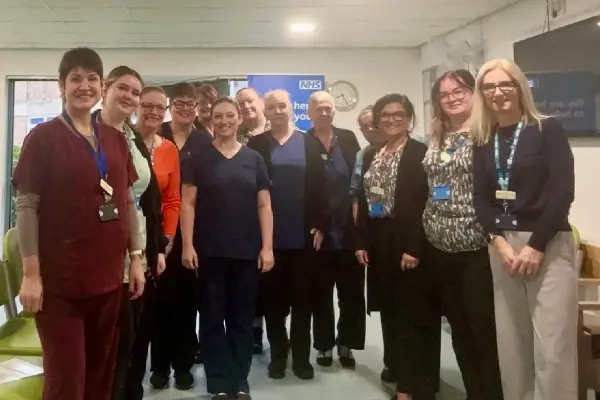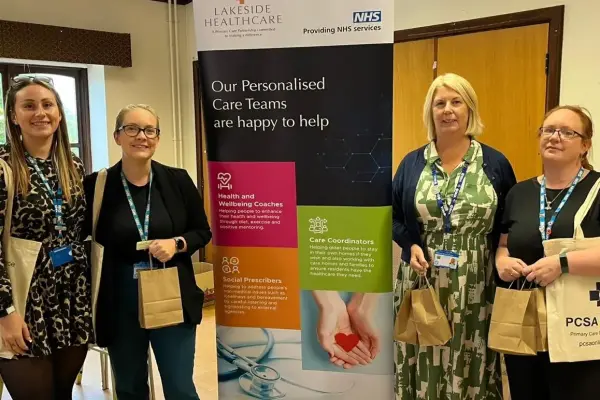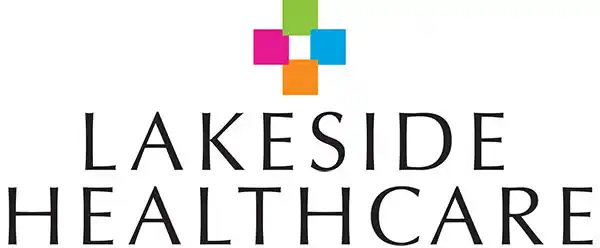We use cookies to help provide you with the best possible online experience.
By using this site, you agree that we may store and access cookies on your device. Cookie policy.
Cookie settings.
Functional Cookies
Functional Cookies are enabled by default at all times so that we can save your preferences for cookie settings and ensure site works and delivers best experience.
3rd Party Cookies
This website uses Google Analytics to collect anonymous information such as the number of visitors to the site, and the most popular pages.
Keeping this cookie enabled helps us to improve our website.

Latest News
All the latest news and information from the surgeries and our patient community
 New Partners join the Lakeside Research Team
Lakeside Research, which runs clinical trials, has been boosted by the addition of two new Partners, Dr Rex Sarmiento and Dr Sophie Reiter.
27/02/2026
New Partners join the Lakeside Research Team
Lakeside Research, which runs clinical trials, has been boosted by the addition of two new Partners, Dr Rex Sarmiento and Dr Sophie Reiter.
27/02/2026
 Celebrating our long serving Partners at The New Queen Street and Stanground Surgeries
Three long serving GP Partners at The New Queen Street and Stanground Surgeries are clocking up a combined 60 years of service this year. Learn more..
26/02/2026
Celebrating our long serving Partners at The New Queen Street and Stanground Surgeries
Three long serving GP Partners at The New Queen Street and Stanground Surgeries are clocking up a combined 60 years of service this year. Learn more..
26/02/2026
 NHS England visits South Peterborough Primary Care
South Peterborough Primary Care Network showcases work in NHS England visit - Read more
30/01/2026
NHS England visits South Peterborough Primary Care
South Peterborough Primary Care Network showcases work in NHS England visit - Read more
30/01/2026
 Lee-Ann’s 30 years with the NHS!
The Stamford Surgery team would like to congratulate and thank Lee-Ann Gasson who has reached her 30-year milestone working for the NHS. Learn more...
22/01/2026
Lee-Ann’s 30 years with the NHS!
The Stamford Surgery team would like to congratulate and thank Lee-Ann Gasson who has reached her 30-year milestone working for the NHS. Learn more...
22/01/2026
 Welcome to Dr Jill Hamilton
We are pleased to welcome Dr Jill Hamilton, who has joined The Stamford Surgery as a GP Partner. Learn more...
13/01/2026
Welcome to Dr Jill Hamilton
We are pleased to welcome Dr Jill Hamilton, who has joined The Stamford Surgery as a GP Partner. Learn more...
13/01/2026
 Mark is our Reception Team Lead
Mark Howard, Reception Team Lead at Stamford Surgery brings a wealth of experience as he formerly was a healthcare practice manager in RAF. Read more.
08/01/2026
Mark is our Reception Team Lead
Mark Howard, Reception Team Lead at Stamford Surgery brings a wealth of experience as he formerly was a healthcare practice manager in RAF. Read more.
08/01/2026
 Help and Support
Christmas can be a positive time, but it may also bring added pressures, worry or low mood for some people. Learn more...
09/12/2025
Help and Support
Christmas can be a positive time, but it may also bring added pressures, worry or low mood for some people. Learn more...
09/12/2025
 Enrolling Adults 60+
Help to see if we can protect people against symptoms caused by the norovirus stomach bug with an investigational mRNA vaccine
09/12/2025
Enrolling Adults 60+
Help to see if we can protect people against symptoms caused by the norovirus stomach bug with an investigational mRNA vaccine
09/12/2025
 Prostate Cancer Awareness Event
Over 120 patients attend successful Prostate Cancer Awareness Event at Cedar House Practice. Learn more...
09/12/2025
Prostate Cancer Awareness Event
Over 120 patients attend successful Prostate Cancer Awareness Event at Cedar House Practice. Learn more...
09/12/2025
 Flu Clinic Update
Thank you to everyone who has attended our flu and COVID vaccine clinics so far - we’ve now given an amazing 5,061 vaccines to our patients!
21/10/2025
Flu Clinic Update
Thank you to everyone who has attended our flu and COVID vaccine clinics so far - we’ve now given an amazing 5,061 vaccines to our patients!
21/10/2025
 Carers Event
South Peterborough PCN holds special event for local carers. Read more...
14/10/2025
Carers Event
South Peterborough PCN holds special event for local carers. Read more...
14/10/2025
 October is Breast Cancer Awareness Month
October is Breast Cancer Awareness Month, a time to show support for everyone affected by breast cancer
09/10/2025
October is Breast Cancer Awareness Month
October is Breast Cancer Awareness Month, a time to show support for everyone affected by breast cancer
09/10/2025
